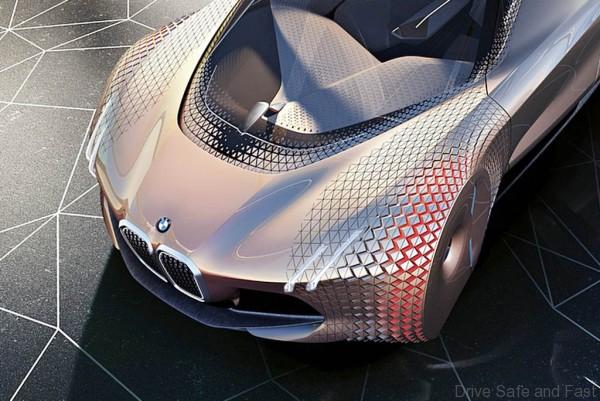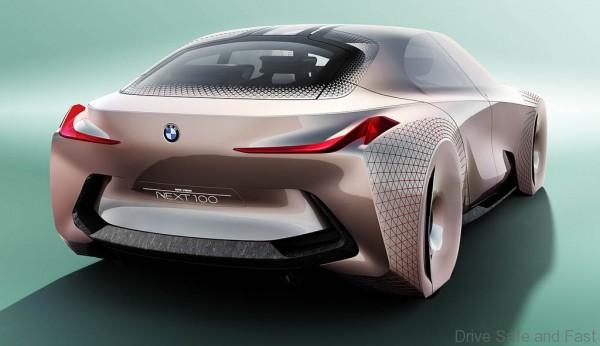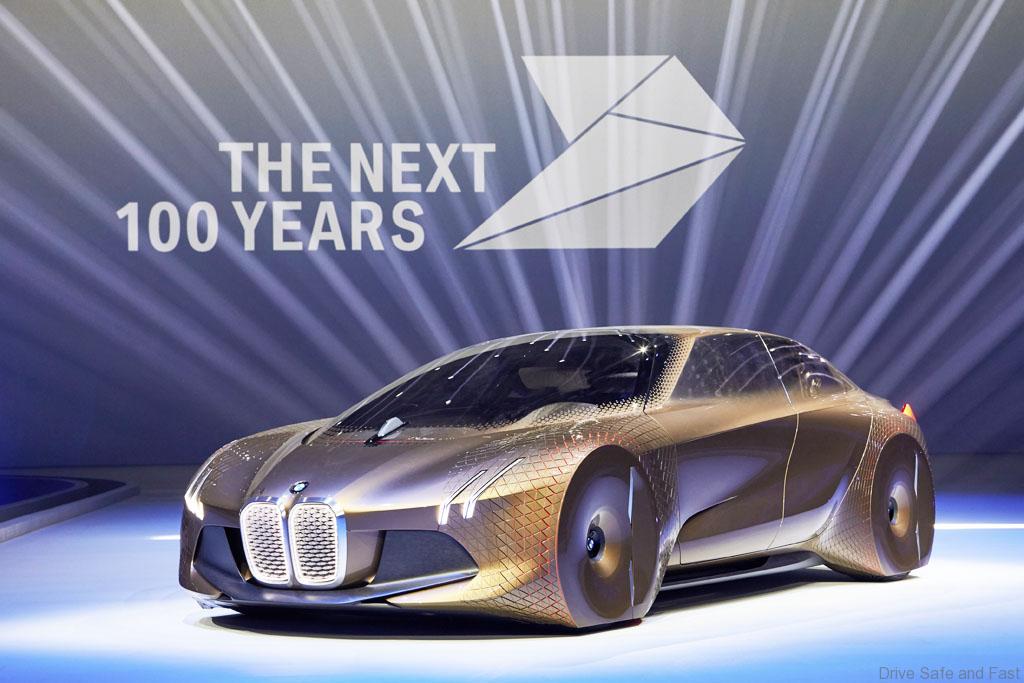To mark its centenary year in 2016, the BMW Group is looking further ahead than usual with a series of Vision Vehicles designed to anticipate and respond to people’s future mobility needs. For BMW, it also tries to answer how the brand’s Sheer Driving Pleasure ideals will coexist with an individual’s need for modern driving.
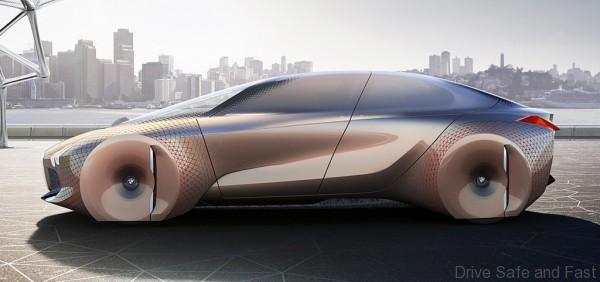
Adrian van Hooydonk, Head of BMW Group Design: “If, as a designer, you are able to imagine something, there’s a good chance it could one day become reality. So our objective with the BMW VISION NEXT 100 was to develop a future scenario that people would engage with. Technology is going to make significant advances, opening up fantastic new possibilities that will allow us to offer the driver even more assistance for an even more intense driving experience.
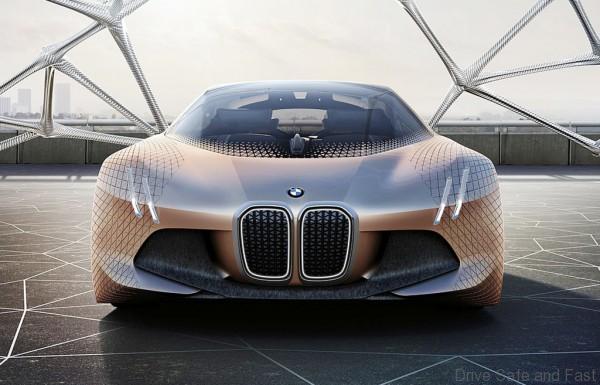
The four main factors that influence the BMW VISION NEXT 100 are:
A genuine BMW is always driver-focused.
The greatest current trend in the automotive industry is no longer a question of ‘if’ but ‘when’ it will reach the masses: autonomous driving. The BMW Group also believes that BMW drivers will be able to let their cars do the work – but only when the driver wants.

Artificial intelligence and intuitive technology become one.
Moving into the future, vehicles will be fully connected. Increasing digitalisation will lead to the physical and digital worlds merging more and more. Artificial intelligence will learn from us, anticipating many of our wishes and working away in the background to perform the jobs we delegate to it. BMW calls this ‘Companion’.
New materials open up breath-taking opportunities.
At some point, presses that punch out hundreds of thousands of steel parts may well become obsolete – the use of carbon will come more widespread. Rapid manufacturing and 4D printing could soon replace conventional tools to open up possibilities in design and engineering.
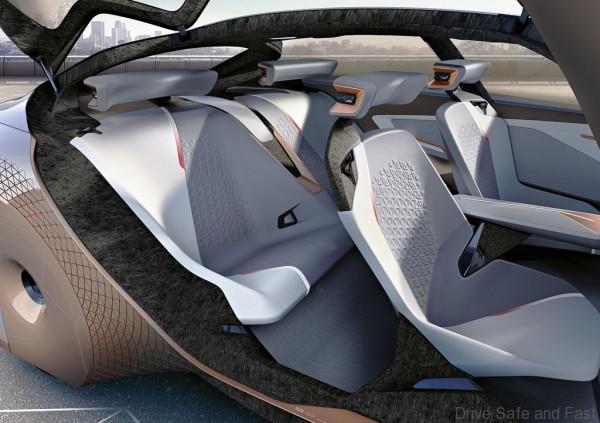
Mobility will remain an emotional experience.
Driving a BMW is about the sensory experience, the adrenaline rush or that intimate moment at which a journey begins. Moving into the future, that’s not set to change – because the emotional experience of mobility is firmly fixed. By keeping the driver firmly in the foreground, the BMW VISION NEXT 100 will heighten this emotional experience
The interior and drive
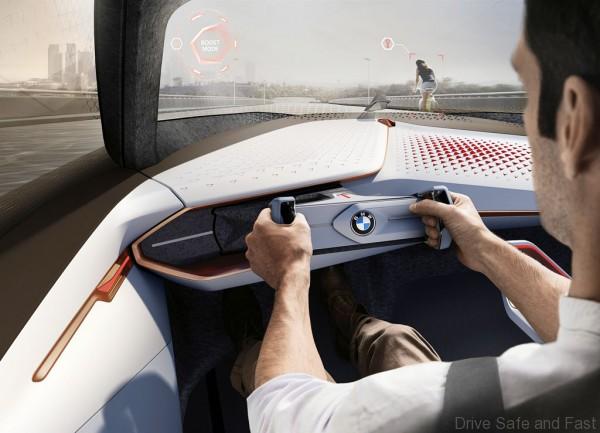
There are two modes of operation: Boost, which is driver controlled, and Ease which is autonomous driving.
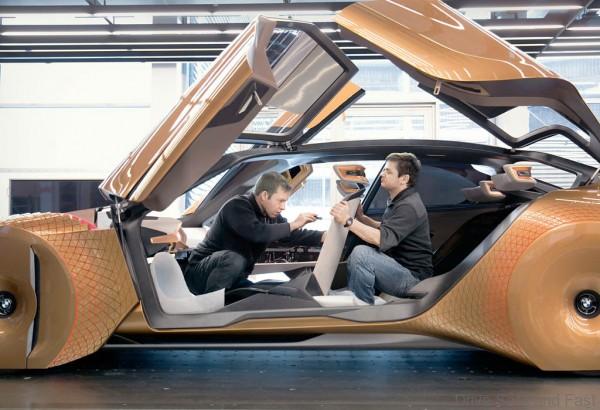
A very unique feature would be Alive Geometry, a collection of 800 set of triangle shapes set into the instrument panel which communicates to the driver via coordinated movements. Combined with the Head-Up display, they involve the driver in a form of preconscious communication, where an intuitive signal predicts an imminent real-time event.
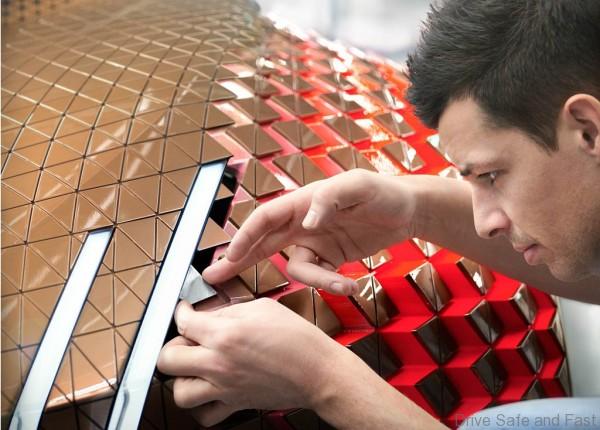
For example, in Boost Mode Alive Geometry highlights the ideal driving line or possible turning point and warns of oncoming vehicles. In Ease mode, on the other hand, Alive Geometry is more discreet in its movements, informing occupants about the road ahead and any acceleration and braking manoeuvres that are about to happen.

For now, the Vision Vehicle will feature organic LEDs as displays, or displays that can freely change shape. However the Vision Vehicle suggests there will at some point be no more displays at all. Instead the entire windscreen will serve as a giant display, directly in front of the driver.
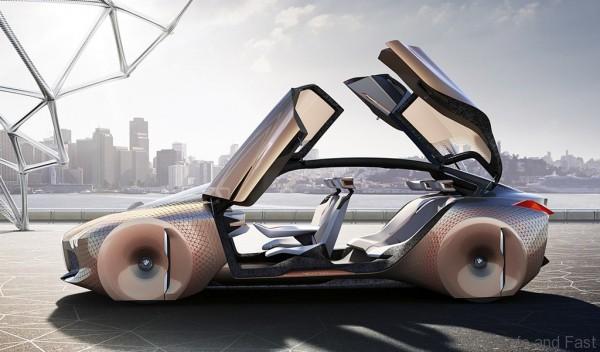
The transition to Ease mode brings about a complete change of interior ambience. The steering wheel and centre console retract and the headrests move to one side to create a relaxed and welcoming atmosphere.
Trademark BMW exterior.
At 4.90 meters long and 1.37 meters high, it has compact exterior dimensions. Aerodynamics are defined by Alive Geometry which includes wheels that are covered by the car’s actual bodywork. When the wheels are turned, the bodywork functions as if it were flexible skin. This helps to deliver a drag coefficient of just 0.18.
